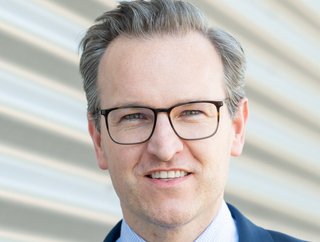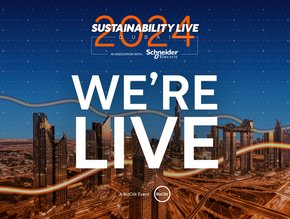Who is Brian Moran, Boeing’s new sustainability chief?

New Year, New Job.
There is something about January that inevitably sees a flurry of activity in the job market, with the promise of a new beginning bringing fresh faces to the C-Suite who may have been patiently waiting in line for an executive departure to herald their own arrival.
This is the story for millions of professionals around the world including Boeing veteran Brian Moran, who stepped into the chief sustainability officer role at the aerospace giant on 1 January 2024.
This appointment follows the sideways shift of former CSO Chris Raymond to President and CEO of Boeing Global Services (BG).
With 20 years of executive experience under his Boeing belt, Moran will lead the sustainability efforts of Boeing, which has more than 145,000 employees across 65 countries and annual revenues of US$75.76 billion.
Moran is no stranger to driving sustainability in aviation, having served as VP, Global Sustainability Policy & Partnerships at Boeing for the last three years – where he led a global team to inform on the international policy landscape and deepen partnerships to advance Boeing’s sustainability objectives, including the scaling of sustainable aviation fuel (SAF).
Advancing sustainable aviation over two decades
In his two decades at Boeing, Moran has served in various leadership roles in the US and Europe, including as Chief of Staff to the CEO or Boeing’s US$30 billion defence business in Washington DC – and has been instrumental in helping Boeing take significant strides in sustainability.
A decade ago, Moran led Boeing’s business activities across 13 countries in Northern Europe where he initiated more than a dozen public-private partnerships in support of the aerospace company’s major strategy pillars including sustainability – and navigated complex regulatory environment to advance the use of SAF in aviation with key customers.
And in his Brussels-based role as VP of Government Affairs in Europe from 2014 to 2018, Moran launched the Boeing in Europe campaign to convey the company’s positive economy and social impact on the region and also represented the aerospace industry at COP21.
Re-locating to Boeing HQ in Chicago in 2019, Moran led corporate communications, developing business strategies, narratives and programmes on key themes including safety and sustainability and promoting the company’s ESG activities.
Based in Boeing’s Amsterdam office since February 2021, first as VP Global Sustainability Policy & Partnerships and now as CSO – Moran will report directly to President and CEO Dave Calhoun – and is tasked with advancing Boeing’s sustainability strategy – with a focus on aerospace sustainability priorities, stakeholder-oriented reporting, industry-wide partnerships and company performance, a company statement read.
Described by CEO Calhoun as having a “wide-ranging expertise within nearly aspect of our operations and businesses, including a deep understanding of and commitment to our partners and stakeholders around the globe”, Moran is charged with elevating Boeing’s focus to enable the company and wider industry to achieve a more sustainable future.
Tackling climate challenges in aviation
Moran will certainly have his work cut out for him, given the weighty challenges facing the aviation industry in reaching the industry target of net-zero carbon emissions by 2050.
According to the International Council on Clean Transportation, the industry is expected to fall short of the 2050 pledge – as huge amounts of sustainable aviation fuel (SAF) is necessary to meet the commitment.
In efforts to reach the target, Boeing has laid out an ambitious roadmap with short-term targets – to achieve 55% absolute reduction in Scope 1 and Scope 2 emissions and reach 100% renewable energy by 2030.
In delivering its sustainability report in June 2023, Boeing outlined milestones made, which includes securing 35% renewable electricity use across the company by 2022 and procuring 2 million gallons of SAF or Boeing’s commercial airplane operations.
Boeing is working with multiple partners around the world to advance SAF as well as with its supply chain to enable 100% SAF compatibility on its airplanes by 2030.
While SAF offers the greatest potential for decarbonisation of the industry, Boeing is exploring other pathways too including electric aviation and concepts that use hydrogen fuel cells.
Its decade-old ecoDemonstrator programme has already evaluated some 230 technologies to reduce fuel use, emissions and noise, with the 2022 programme alone testing 30 new technologies to help decarbonise aviation, while the 2023 programme assessed 19 technologies.
Among more recent milestones, Boeing has launched an initiative to “catalyse the development and use of Sustainable Aviation Fuel (SAF) among Asia-Pacific Economy Cooperation member countries".
Along with renewable energy, the company is taking three other pathways to sustainability success – fleet renewal, advanced technologies, and operational efficiency.
*******************
Make sure you check out the latest edition of Sustainability Magazine and also sign up to our global conference series - Sustainability LIVE 2024.
*******************
Sustainability is a BizClik brand.






